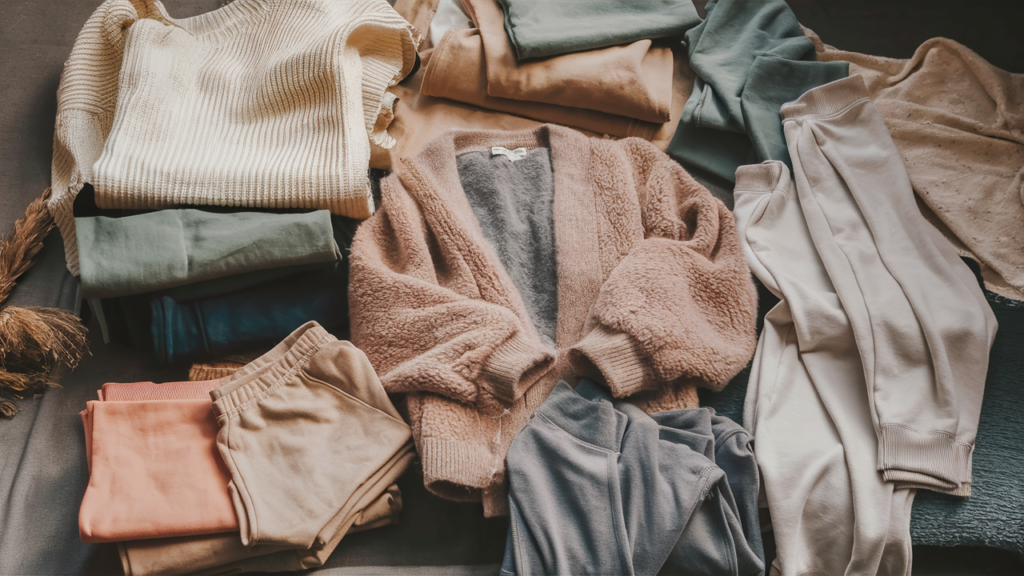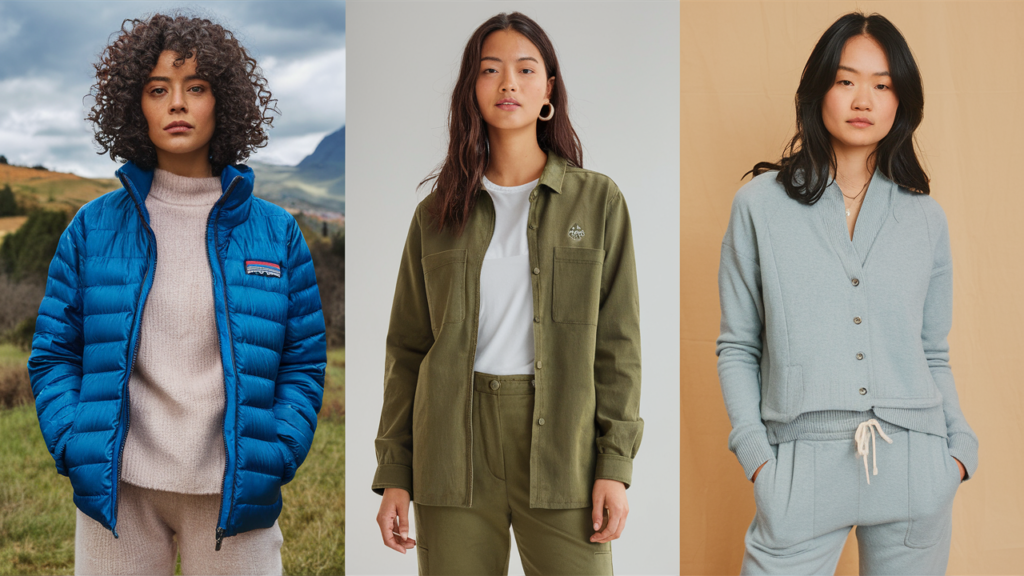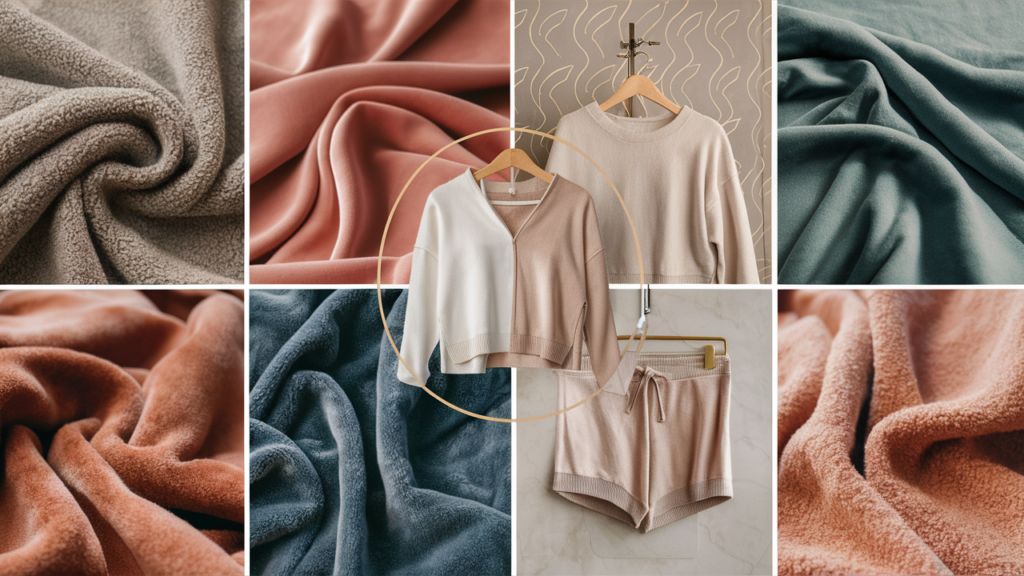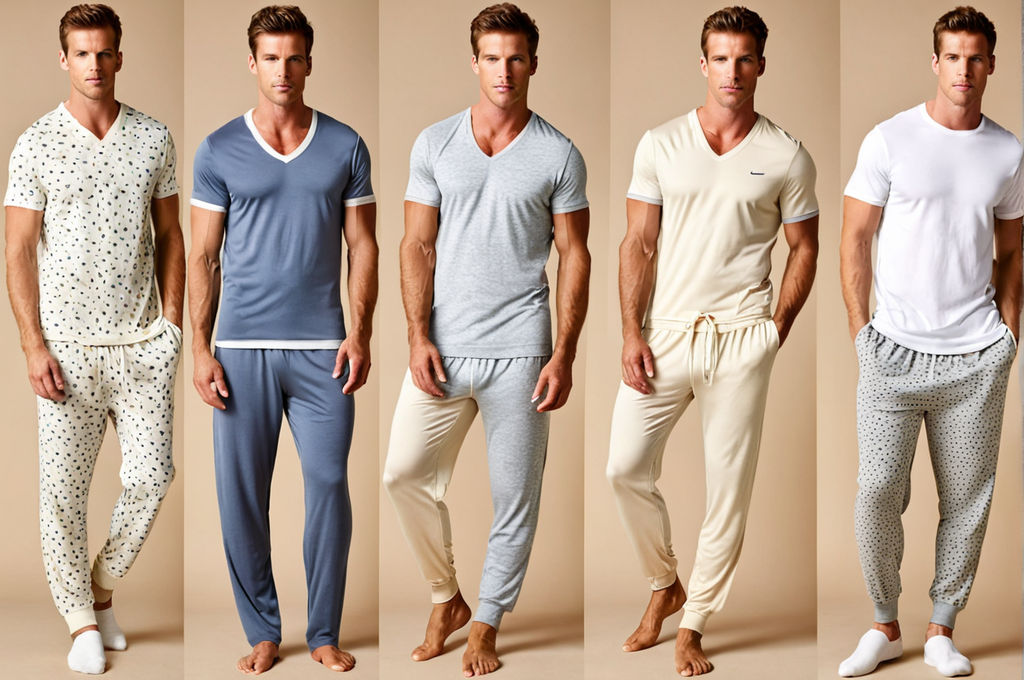In recent years, sustainable options for loungewear have drawn considerable attention as people’s awareness of their environmental impact has grown. This transition to more sustainably made apparel goes beyond our daily wear to include the comfortable clothes we wear at home. The premium, environmentally friendly loungewear market has skyrocketed as we spend more time at home. Fortunately, several sustainable options are now available that allow you to relax in style while reducing your environmental impact. In this comprehensive guide, we’ll explore the rise of sustainable loungewear, its environmental impact, fabric choices, ethical brands, maintenance tips, cost considerations, and the future of this eco-conscious trend.

Table of Contents
ToggleThe Rise of Sustainable Options for Loungewear
The fashion industry is changing as a result of consumer demands for eco-friendly products and greater transparency. As a result, sustainable loungewear has become more popular, emphasizing both comfort and environmental consciousness. People are becoming more conscious of the need to reduce their carbon footprint as they look for comfort and relaxation in their clothing. Because they rely on non-renewable resources and unsustainable manufacturing practices, traditional fast fashion models have come under fire. The use of sustainable materials and production techniques in loungewear collections has become a priority for many brands as a result.
The Environmental Impact of Traditional Loungewear
The environmental cost of traditional loungewear is frequently very high. It is often made of synthetic materials, like nylon or polyester, which come from non-renewable resources and need a lot of energy and water to produce. Additionally, hazardous chemicals and greenhouse gases are released into the atmosphere during the production of synthetic materials like polyester.
Sustainable Fabric options for Loungewear
Thankfully, there is a large selection of sustainable fabric options for loungewear. Tencel, hemp, bamboo, and organic cotton are all great options because they are biodegradable and made with environmentally beneficial practices. These fabrics have a much lower environmental impact while providing the same level of softness and comfort as their conventional equivalents.
- Organic Cotton: The growing of organic cotton reduces its impact on the environment because it is done without the use of synthetic fertilizers or pesticides. Because it is more breathable and softer than regular cotton, it is the perfect material for loungewear.
- Bamboo Fabric: Bamboo is a fast-growing plant that grows without the need for pesticides or much water, which is the source of bamboo fabric. Due to its natural antibacterial, moisture-wicking, and hypoallergenic qualities, it is a popular selection for sustainable loungewear.
- Hemp: The versatile and environmentally friendly fiber hemp grows without the need for pesticides or a lot of water. It is a great choice for long-lasting loungewear because it is quite durable and gets softer with every wash.
- Tencel: Tencel, commonly referred to as lyocell, is produced with minimal waste and water use using a closed-loop manufacturing process with wood pulp procured sustainably. Comfort and sustainability are combined with its softness, breathability, and biodegradability.
- Recycled Polyester: Recycled polyester is produced from used plastic bottles, which keeps waste out of landfills and lowers the need for new plastic manufacturing.

These sustainable fabrics not only reduce the impact of loungewear manufacture on the environment, but they also provide excellent comfort and durability, ensuring that your loungewear will last for a long time.
Ethical and Sustainable Loungewear Brands
Shopping for sustainable loungewear means supporting companies that value sustainability and ethical business practices all the way through their supply chain. With the growing demand from consumers for sustainable loungewear, numerous businesses have taken up the responsibility. Leading the way in sustainable design are businesses like Patagonia, Reformation, and Pact, which provide a range of loungewear alternatives crafted from environmentally friendly materials and manufactured under ethical working conditions.
- Patagonia: Patagonia offers a line of sustainable loungewear made from recycled and renewable materials, even though they are best known for their outdoor gear.
- Pact: This brand offers a variety of cozy and fashionable loungewear alternatives made from recycled polyester, organic cotton, and other sustainable fabrics.
- Reformation: Reformation, a company well-known for its dedication to sustainability, sells a range of loungewear made from sustainable fabrics, including Tencel and recycled cotton.
- Kotn: Kotn focuses on ethical production and environmental responsibility while producing premium loungewear and basics from 100% organic Egyptian cotton.

You can enjoy the comfort of your favorite relaxation clothes while knowing that your purchase helps reduce the environmental impact of the fashion industry by supporting these and other sustainable loungewear manufacturers.
Tips for Maintaining Sustainable Loungewear
It is crucial to carefully follow care instructions in order to extend the life of sustainable loungewear. You can protect the fabric and the environment by washing clothes in cold water, letting them air dry whenever you can, and staying away from harsh chemicals and detergents. Furthermore, you can extend the garment’s life and cut down on waste by fixing small problems rather than throwing it out.
Cost Considerations
In comparison to its traditional counterparts, sustainable loungewear may be more expensive initially, but in the long run, the benefits usually outweigh the costs. When you choose an eco-friendly, high-quality purchase, you will save money over time by enjoying increased comfort and durability. Furthermore, considering the actual cost of fast fashion to include unethical labor practices and environmental destruction, sustainable options for loungewear are generally a more ethical option.
The Future of Sustainable Loungewear
Sustainable loungewear has a promising future as people’s awareness of social and environmental issues rises. We may anticipate seeing more sustainable materials and production techniques developed in the years to come, thanks to technological and innovative developments. Consumers are growing more picky about the things they buy, and more companies are adopting sustainable practices.
Conclusion
In conclusion, adopting sustainable options for loungewear is not only beneficial for the environment but also for our comfort and well-being. We can protect the environment while still enjoying the comfort of our loungewear by selecting eco-friendly fabrics, supporting ethical products, and engaging in responsible consumption. When choosing your next pair of cozy yet trendy loungewear, there are now a variety of sustainable fabrics to pick from, such as recycled polyester and organic cotton. You can have the best possible experience while contributing to a sustainable and ethical production process by supporting brands that uphold these values. One lounge session at a time, we can work together to create a more sustainable future for fashion.
FAQs
Q1: Is sustainable loungewear more expensive than conventional options?
A1: While sustainable loungewear may have a higher upfront cost, its durability and longevity often make it a more cost-effective choice in the long run.
Q2: Are there any certifications to look for when purchasing sustainable loungewear?
A2: Yes, certifications such as GOTS (Global Organic Textile Standard) and OEKO-TEX® Standard 100 indicate that the clothing meets specific environmental and social criteria.
Q3: Can sustainable loungewear be as stylish as conventional clothing?
A3: Absolutely! Many sustainable loungewear brands offer stylish and trendy designs that rival those of conventional fashion labels.
Q4: How can I support sustainable fashion if I’m on a budget?
A4: Consider shopping second-hand, participating in clothing swaps, or investing in timeless pieces that can be worn for years to come.
Q5: What are some other ways to incorporate sustainability into my wardrobe?
A5: In addition to purchasing sustainable clothing, you can also repair and repurpose old garments, recycle clothing responsibly, and minimize your overall consumption.



